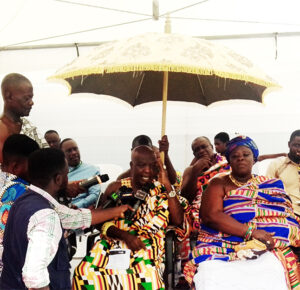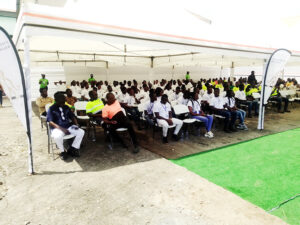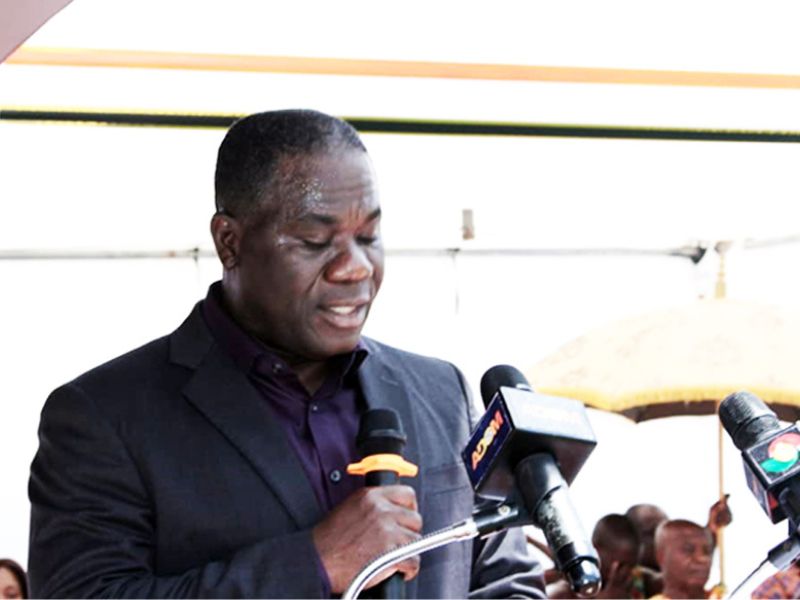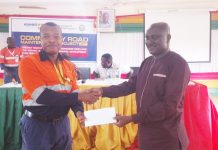The paramount Chief of Adansi in the Ashanti region, Opagyakotwere Bonsra Afriyie II, has kicked against the use of English to teach in lower primary schools because it does not fully allow the children to exhibit their cognitive powers.

Speaking at the matriculation of the third batch of the AngloGold Ashanti’s Community Youth Apprentice Programme, which was held at Obuasi recently, he contended that the use of English language has deprived many Ghanaians from expressing themselves at examination halls.
According to Nana Bonsra Afriyie II, prior to the arrival of the Europeans, our forefathers were speaking their native languages, but today we have rather relegated it to the background and are rather speaking the white man’s language.
To him, most students are today adopting foul means to pass their exams because they don’t properly understand the English Language.
He expressed appreciation to the AGA for putting up such a programme and urged the 101 trainees to take their studies seriously, since the world has changed and that one could only survive with the skills that the person possesses.
The Managing Director for AGA, Dr Eric Assubonteng, on his part noted that the programme forms part of the ten year Socio-Economic Development Programme (SEDP) of AGA.

According to him, the trainees would be trained in areas such as Welding and Fabrication, Mechanical and Electrical Technician with AGA bearing the financial costs of the training.
According to him, since the commencement of the programme, AGA had trained 128 youth in the areas of welding and fabrication, auto mechanics, auto electrician, forklift operation and grader operation.He urged the youth to take the opportunity seriously and learn the hard way.
The Chief Executive Officer (CEO) for Ghana Chamber of Mines, Sulemana Koney on his part noted that when it comes to human resources, trained skills are crucial, underscoring that there are categories of expatriates who are allowed to come and work in the sector.
Koney called for collaboration among stakeholders to develop the human capital development on the basic technical skills.









